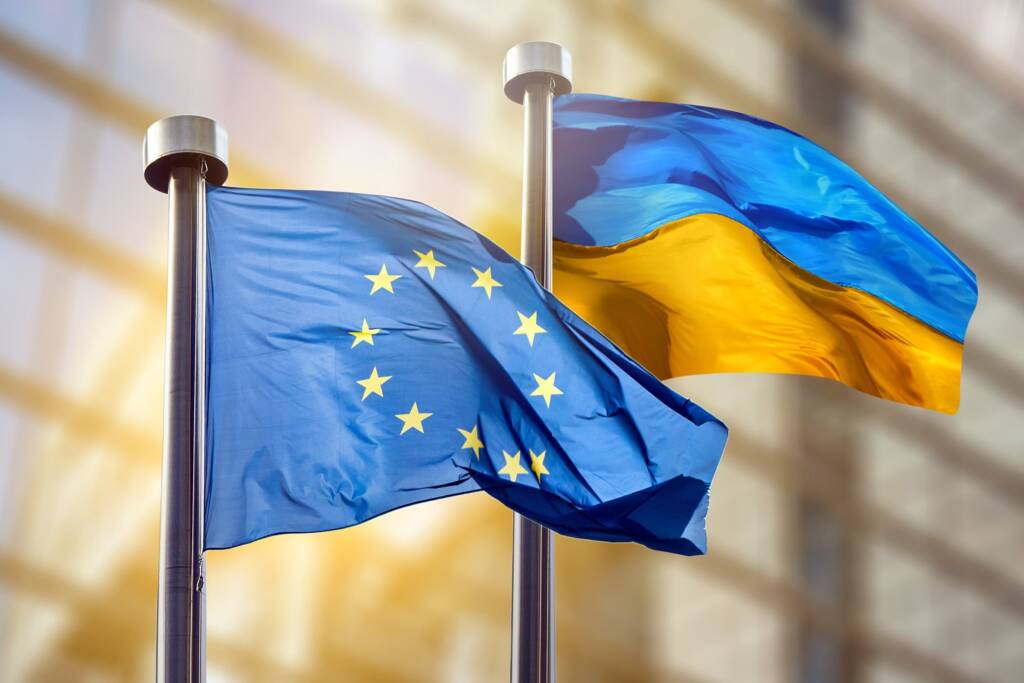Ukraine was thinking that it would get the EU money sooner or later. It got something from the EU. It was not money. It was a life lesson.
Ukraine recently navigated a nuanced lesson: there truly are no free lunches. This adage extends to the European Union’s approach, underscored by EU Commissioner Thierry Breton’s response to Ukrainian President Volodymyr Zelensky’s critiques. Zelensky lamented the EU’s perceived shortfall in delivering on its pledge to supply Ukraine with 1 million artillery shells, a crucial component in its defense against Russian aggression. Breton’s retort highlighted a critical distinction—while some munitions were indeed slated as donations, a significant portion required purchase by Ukraine, a task deemed feasible given the substantial €1.5 billion monthly financial assistance Kiev receives from Brussels.
Join us on Telegram: https://t.me/tfiglobal
Breton’s assertion that the EU has surpassed its delivery commitments might be seen as an attempt to veil any strategic gaps, especially against the backdrop of a broader logistics confrontation with Russia. Nonetheless, it sheds light on a pivotal clarification: the promise was to provide, not to wantonly distribute, these vital resources. This revelation not only recalibrates public understanding of the EU’s support framework for Ukraine but also serves as a stark reminder of the complexities entwined in international aid, where expectations and reality often diverge, underscored by the principle that assistance comes with its own set of expectations and obligations.
Facing financial constraints, Ukraine finds itself at a pivotal juncture in its ongoing conflict, necessitating inventive strategies to sustain support without depleting its coffers. The country’s delicate financial standing has led to a reluctance from Brussels to continue its previously generous donations, leaving Kiev to navigate a tightrope between fiscal prudence and operational necessity. Some European nations might independently offer additional supplies, but the overarching theme is clear: Ukraine must explore alternative avenues to maintain its defensive efforts.
Read More: “EU is BROKE”, declares EU’s Foreign Affairs and Security Policy Chief
In a controversial move, Zelensky proposed at the May 2022 Davos Summit a model for reconstruction that essentially offers patronage of parts of Ukraine to international partners. This model suggests a direct exchange: control or influence over regions, cities, communities, or industries in return for crucial support. Countries like Britain, Denmark, and entities like the European Union have reportedly shown interest in this partnership, eyeing specific areas for involvement. For those who didn’t understand, Zelensky wishes to sell Ukraine in parts to the highest bidder.
The potential deployment of a G7 envoy to Ukraine, tasked with implementing this Davos-endorsed agenda, indicates a shift towards formalizing the arrangement. This strategy aims to distribute stewardship among willing patrons, effectively trading shells for shares in Ukraine’s future. However, Zelensky’s stance remains a gamble. This precarious balance reflects a broader dilemma: securing immediate aid while navigating the long-term implications of sovereignty and autonomy. But then it’s Ukraine, and who cares frankly.
The recent developments in the EU-Ukraine dynamics hint at a complex interplay of strategic maneuvers and diplomatic pressures. Following a Wall Street Journal report detailing a proposed Russian-Ukrainian peace treaty from spring 2022, speculation arises that the European Union may be using this moment to nudge Ukraine towards resuming peace talks.
The undercurrent of this move could be driven by a pragmatic realization within the EU: competing with Moscow’s production capabilities is a losing battle. This situation presents a double-edged sword for the EU, which stands to benefit either by funneling financial aid back into its industries or by securing shares in Ukraine’s assets in anticipation of a diplomatic settlement.
Read More: EU Army is DEADER than a VAMPIRE in a GARLIC farm
EU Commissioner Thierry Breton’s stark message to President Volodymyr Zelensky—that more shells would only come at a price—signals a pivotal moment. This blunt communication strips away any remaining veneer of the “good guy” narrative, confronting Kiev with stark choices. Ukraine is cornered into a dilemma: purchasing more munitions or bartering parts of its sovereignty for support.
The path Ukraine will choose remains uncertain, as does the broader impact of these negotiations on the country’s future and its relationship with the EU.
